- Home
- Helen Forrester
The Liverpool Basque Page 9
The Liverpool Basque Read online
Page 9
Grandpa Echaniz chuckled and agreed.
‘When’s your dad going to come up and see us?’ Vicente asked Manuel, as they turned towards the stone hut.
Manuel smiled shyly. He did not know what answer to give and looked towards his grandfather for a reply.
Grandpa said, ‘He’ll try to get up here next time he docks in Bilbao. Last time he only had an hour or two ashore, Rosita says, so he went to see the Barinètas.’
The shepherd nodded. ‘Come on in,’ he said, as he led the way into the stone hut. He pulled off his beret and threw it on to a wooden bench against the wall. Then he mopped his face with a red cotton handkerchief from his trouser pocket.
After staring round the little hut, Manuel found his voice, ‘What about the sheep, Uncle Vicente? Won’t they get lost?’
His uncle looked down at him and laughed. ‘No,’ he assured him. ‘Come and see.’ He took him to the door, and pointed with a stubby, brown finger. ‘Look past the sheep, right over there.’
Manuel looked and saw nothing but sheep, sparse grass and rock. Then he saw a slight movement a little above the sheep’s sheared bodies. ‘Is that a dog?’ he asked.
‘Yes. It’s my sheep dog. He won’t let any of the sheep wander very far.’
‘He can’t talk to them,’ responded Manuel rather scornfully.
‘He barks at them – and runs round and round until he gets a stray back with the flock.’
Manuel felt a little sceptical at this; it was his experience that grown-ups sometimes told tall tales. He was too polite to say anything, however, and allowed himself to be sat up on the table, while Uncle Vicente got three grubby mugs down from a shelf, and Grandpa slung a bag he had been carrying on his back on to the table beside him. ‘Brought you some bread,’ he announced to Vicente. He took a bottle of wine out of his pocket and placed it by the bag.
While Uncle Vicente rifled the bag of food his mother had sent up, and took out a knife to cut the bread, Manuel looked round him.
Grandpa Echaniz had picked up Vicente’s staff and brought it into the hut. It was now propped in a corner beside a heavy cudgel. From wooden pegs driven between the stones making up the wall hung the shepherd’s leggings and dark-coloured cape. A narrow wooden bed, with a couple of coarse blankets on it, lay against another wall. A stool and a bench made up the furnishings. A chipped enamel bowl flanked by a large tin of tobacco stood on a shelf, with a bar of soap in a saucer, a candlestick and a lantern. To Manuel it did not seem much more bleak than one or two of the rooms he had seen round Wapping Dock, when he visited some of his playmates, except that it had no fireplace – and no stout mam presiding over it.
Vicente handed him a slice of fresh bread with a piece of hard cheese on top. He poured wine into two of the mugs. Then he put a little into the child’s mug and added a ladle of water to it from a jar covered by a cotton cloth, which Manuel had not noticed before. ‘Mustn’t send you home drunk,’ he remarked, as he handed the mug to his nephew.
Manuel smiled up at his new uncle, and Vicente chucked him under the chin. ‘You’re a great lad,’ he told him. Then he took his own drink and sat down on the bench by Grandpa. ‘Pedro’s lucky,’ he said, and lifted his mug towards his father before taking a sip.
The old man lifted his own in return, and said, ‘You’ll do as well yourself one of these days. You’ll have this farm.’
‘I suppose,’ replied Vicente. ‘But I’d like a girl who wants to marry me, not the farm!’
His father laughed, and bit into his bread and cheese.
With his scratched and aching legs dangling from the table top, Manuel copied his uncle’s movements exactly, lifting his mug to drink from time to time and eating his bread. He listened, while the two men discussed a modest increase in the price which they had got for their fleeces. They speculated that the increase might be due to a sudden demand in Europe for woollen cloth for army uniforms, as a result of war threatening to break out. Far from the political turmoil of Madrid, they scented profit, if the Spanish government had enough sense to remain neutral.
‘God give them enough sense to stay out of it,’ said Grandpa Echaniz fervently.
Grandpa’s prayer proved most effective. The Spanish did remain neutral throughout the conflict, and Bilbao and its hinterland profited exceedingly well.
After making the acquaintance of Uncle Vicente’s dog, who wagged his tail at them absently, but never took his eyes off his sheep, Grandpa and Manuel walked companionably back home. Manuel wondered if Uncle Leo, far away in America, had a stone hut with lots of sheep nearby, and a lovely black dog.
All through his life Manuel remembered the quiet of the mountain shepherd’s surroundings and their beauty. Not even a whole range of Rocky Mountains could take the belief from him that his father came from the most beautiful place on earth.
When he was grown-up, the Second World War provided him with greatly increased wages, but it cut him off from visits to Spain; meeting Kathleen in Canada and marrying her had added to the separation. He rarely saw his mountains again.
When adding to his memoirs in a fit of deep nostalgia, he described for Lorilyn the perfection of this moment of his life when he fell in love with a place, not a person. Then he closed his exercise book. His Echaniz grandparents died of influenza after the First World War, and Uncle Vicente took over the farm. When Uncle Vicente’s grandson finally inherited, Manuel lost touch with the family. But he never quite forgot them.
It was the declaration of the First World War, however, which cut short his childhood stay with Grandma and Grandpa Echaniz.
When he and his grandfather walked into the farmhouse, after visiting Vicente and his sheep, the carrier had brought a message to Rosita telling her to return to Bilbao as soon as she could, because Grandpa Juan Barinèta wished to sail home to Liverpool, before hostilities cut them off.
Manuel’s narrow, sallow face had grown brown in the mountain air, and his flat cheekbones had a healthy pink in them. To Rosita, looking at him as she passed on Grandpa Barinèta’s urgent message it seemed as if he had suddenly grown from being a toddler into a boy, so much so that she unhesitatingly plonked a fretful Francesca into his arms, while she resumed packing their valise, and then bundled up napkins, still warm from drying in the sunshine, into an old shawl. She tied the shawl up with sharp hasty tugs.
‘Why can’t we stay up in the mountains?’ he asked, wanting to cry and to put down Francesca, who was heavier to hold than he had imagined.
‘And who will look after your Auntie Maria, if we get marooned here – or your Papa, hm? And him in a British-registered ship!’
Manuel could not see the significance of his father’s being in a British ship – what was so wonderful about that? He always sailed in the same boat. He put the question to Rosita, as he staggered to a footstool, to sit down and lay Francesca across his lap.
‘Because the Germans might sink it!’ his mother replied testily. She was not feeling well. She was pregnant again and it was not improving her temper.
Manuel felt sick; he knew that when ships went down men sometimes drowned. He was not too sure what drowning entailed, but he knew men went to be with God after it. He shivered and clutched the baby tighter. Francesca gurgled at him and the tiny mouth formed a smile; at that moment she became a person to him, and he began to lose some of his jealousy of her. It was comforting to hold her, while he tried to come to terms with the sense of panic that swept him, at the idea that his father could be in real danger.
They said farewell to Grandma in her big kitchen and asked her to give their love to Vicente, since there was no time to go back up the mountain to give it personally. Grandma clung to the little boy. She had already lost two sons, and she had seen immediately the threat to Pedro’s life now that the British had declared war, and she was inwardly terrified of losing him.
She watched the little donkey cart wind its way down the narrow mountain road, waving until it vanished round a bend. Then she went silent
ly back to her washboard to scrub her husband’s shirts.
Grandfather Echaniz delivered them safely to the house in Bilbao. He stayed only long enough to have a glass of wine with the Barinèta brothers, before starting back to his farm. ‘Got to get the hay in,’ he said.
The Liverpool family was to sail early the following morning, and the sun was barely up when Rosita called Manuel to get ready to leave. There was a second flurry of hasty packing of baby clothes in a shawl, and to help his mother, Manuel bumped a valise down from stair to stair and then ran up again to get the shawl bundle. ‘When will we have breakfast, Mam?’
‘In the ship,’ she responded morosely, as she buttoned up her blouse after feeding Francesca. She was feeling a little sick and dreaded the discomfort of the voyage home.
When he came downstairs for the second time, he found Grandma Micaela in the hall. She was wrapped in her shawl and was sitting on a suitcase. When he had put down the bundle, she handed him a mug of milk. ‘Your auntie brought this for you, luv.’
He thankfully took the milk from her and drank it, while she observed his forlorn expression.
‘What’s the matter, dumpling?’
He laid the empty mug in the corner of one of the stairs, and went to her, his bottom lip trembling. He put his arm round her neck and laid his head on her shoulder. ‘It’s Daddy. I’m so scared.’
‘Oh, dear. What are you frightened of ?’
‘Mam said the Germans might drown him.’
How could Rosita be such a fool! She embraced the child, and assured him that Pedro was fine. The Germans were not going to waste ammunition on a little old freighter.
‘Mam’s frightened. I’m sure she is.’
‘Well, a war is a shock to us all,’ his grandmother admitted. ‘But when you get as old as me you know you can get through them all right.’ She pushed him away from her a little, so that she could look at him. She laughed, and then added, ‘Your dad’s a great swimmer!’ She continued to hold him close to her, while the family slowly gathered by the front door, waiting for a friend of his great-uncle’s to bring his horse and cart to take them down to the dock, where lay the small freighter on which Grandpa Barinèta had secured a passage for them.
It was his great-uncle who lifted him on to the cart and told him to hold the side tightly. He helped Rosita up, so that she could sit beside the driver, and handed Francesca up to her.
‘Take good care of yourself,’ the second cousins cried to her in chorus. ‘You mustn’t lose it.’ They giggled together, as they stood back from the horse.
While Manuel watched the street of fine old houses roll past and waved farewell to new friends, the old people walked behind the cart. They did not say much to each other; they did not need to.
At the wharf, Juan’s brother clung to Juan’s and Micaela’s hands, as if loath to let them go. In their earlier life in Spain, they had had plenty of experience of turmoil and strife; and it was as if they all sensed that this newly declared war would be extremely bitter. ‘You could be better staying here,’ he suggested to Juan. ‘There’ll be plenty of work, if Spain stays neutral.’
Juan sighed. ‘We don’t know yet. Let’s see what happens.’ He held his brother’s hand closely and put his other arm round him in an embrace. ‘If it were only Micaela and me – we’d stay here. But I have to think of Pedro and Rosita – and Maria, not to speak of the kids. I’ll wait till Pedro comes home, and talk to him.’
The voyage was fairly placid, until near the Isles of Scilly where they hit choppy waters. Though a queasy Manuel and an equally uncertain Grandma Micaela, carrying Francesca, managed to go on deck, to sit in a protected corner, Rosita lay on a bunk and heaved helplessly into a rusted enamel basin. Not only was she sick, but she was also short-tempered – her current pregnancy was sapping her strength. It had come too soon; she still felt tired from having Francesca. Micaela, who had every sympathy for her, did her best to keep Manuel and Francesca away from her.
She assured Manuel that his mam was not seriously ill; she would be better the moment she was on land again. He was relieved to hear Micaela say this; mams could die, too.
Grandpa Barinèta sat cross-legged by him on the deck and told him seamen were rarely sick, which was far from true, and taught him how to tie several complicated knots. ‘When you go to sea, when you’re a big man,’ he said to the boy, ‘you’ll need to know knots.’ With a couple of pieces of string in his hand, Manuel sat by Micaela and practised them assiduously. She praised his efforts and hoped he would do better in life than go to sea.
When they reached the beginning of Liverpool Bay, the sea was calmer, and a shaky Rosita was able to crawl up on deck, to sit cross-legged with them. Manuel thankfully curled up by her, grateful that she seemed more herself.
As they waited for the pilot to come aboard, Micaela began to worry aloud about Aunt Maria.
‘I hope she’s all right. It’s a pity she couldn’t come with us.’
Rosita pushed her red, windswept curls back from her face. ‘She didn’t want to come. She hates boats – even going on the ferryboat. And, you know, neither she nor I really belong in Vizcaya. Maria’s always saying that she belongs to Liverpool – and I feel like that, too.’
‘You were glad enough to come to Vizcaya!’ Her mother’s voice was unusually sharp.
‘Well, of course I was. It’s lovely to go for a holiday, and Pedro’s family was very good to us. And they loved seeing Francesca. But I mean, not to go for ever.’
Grandma felt too old and tired to argue. She would have liked to have gone to see some of her own relations, in Santiago de Compostela, while they were in Spain. But they had had to keep the cost of the visit to a minimum, so she had not mentioned this desire to Juan. Now, she wondered if she would ever see them again. She was painfully homesick, and was upset at her daughter’s lack of attachment to her homeland. She pursed her lips in disapproval.
Beside her, Manuel lay flat on his back and watched the seagulls swoop and climb above the boat. The sun shone warmly on him. The chatter of the crew, standing at the rail while they watched the approaching pilot boat, came to him as a comfortable male buzz. He had not been listening to his womenfolk’s conversation; reassured about his father, glad to see his mother on deck, his mind was a contented blank.
Far away in Canada, Manuel remembered those golden moments, lying contentedly on the deck. They were his last truly happy moments of childhood before his sense of total security was shattered.
Chapter Twelve
On his return to Liverpool, Manuel quickly discovered that his playmates were not interested in his adventures in Spain; most of them had exotic grandparents on the male side, anyway. Andy Pilar was bursting with the news that he had had the measles. ‘Me ma had to get the doctor, ’cos me temperature was a hundred and ten! You should of seen me spots – all over me stummick, they was!’
More temperately, Brian Wing told him that he had had the measles, too, and that Mrs Connolly had remarked that, as a result of the disease, he might have to wear spectacles – as soon as his father could afford them, that was.
‘I feel I’m in a bit of a fog,’ he explained to Manuel, as they amiably swopped cigarette cards. He had to peer closely at each card, which Manuel found most peculiar.
At the tea-table that evening, Manuel mentioned Brian’s need of spectacles. Grandma Micaela immediately suggested that he tell Mrs Wing that the pawnbroker sometimes had second-hand glasses for sale; so, after the meal, he ran along Mersey Street to the tiny laundry to inform her of this.
He found her surrounded by piles of dry washing, busy damping and rolling each shirt or sheet, preparatory to ironing them. Several irons were hooked into the bars of the fire-grate to heat; and in a corner the copper heaved and bubbled with further washing. The tiny room was stiflingly hot.
On a bench against a wall sat Mr Wing, his older son, Fred, and Brian, each with a coarse pottery bowl in his hand. With a dexterity which mesmerized Manuel, they shov
elled rice from the bowls to their mouths with a pair of sticks.
Manuel blinked, and turned to Mrs Wing to give the message about the glasses. She smiled and bowed over her ironing table, though it was doubtful if she understood what he was saying. Mr Wing understood, however; and the kindly thought behind the message.
‘Please to thank respected grandmother,’ he said to Manuel; his English came slowly and was pronounced with difficulty.
Manuel nodded. ‘Can Brian come out to play?’ he asked.
Brian must finish his tea, first; then he could go out for a little while, Mr Wing said gravely. He would come to Manuel’s house.
Grandma Micaela was seated on the front step, when Manuel returned. He sat down by her, to wait for Brian, and repeated Mr Wing’s thanks to her.
She gave a slow, sweet smile; it was nice to be called ‘respected’, even if it was only by a Chinese.
‘Why doesn’t Fred come out to play, Granny? He never plays with anyone. Is he too old, do you think?’
‘I don’t think he’s too old,’ responded Grandma. She spoke, as usual, in Basque. ‘I’ve seen the lad carrying huge bundles of laundry on his back, along South John Street, and, once, pushing an old pram full of it, in Princes Road. It’s my guess he delivers and collects washing from little hotels and cafes, for his dad. He won’t have time to play.’
Nor energy, she thought with a sigh. When she considered the abject poverty of the Wing family, she knew she was rich. She hugged her grandson to her and thanked God that he was well fed and clothed.
The hot weather concluded with a heavy thunderstorm, and the drainpipe at the back of the Barinètas’ house collapsed. Micaela asked Juan if he could repair it.
‘If we wait for the landlord to do it, we’ll wait for ever,’ she told him. ‘The water’s trickling from the gutters all down the walls – there’s a real puddle, even in the cellar. The coal’s getting damp.’

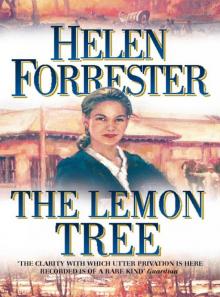 The Lemon Tree
The Lemon Tree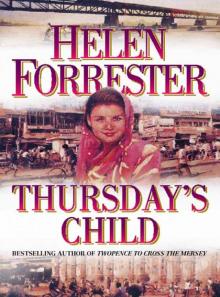 Thursday's Child
Thursday's Child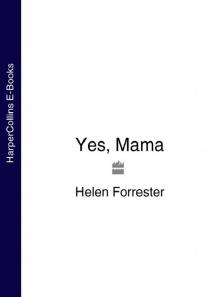 Yes, Mama
Yes, Mama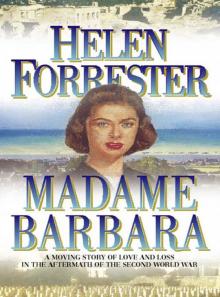 Madame Barbara
Madame Barbara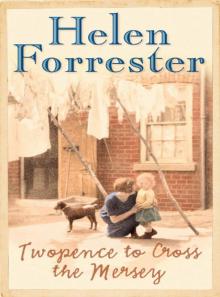 Twopence to Cross the Mersey
Twopence to Cross the Mersey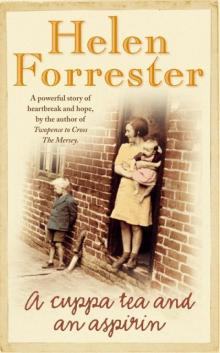 A Cuppa Tea and an Aspirin
A Cuppa Tea and an Aspirin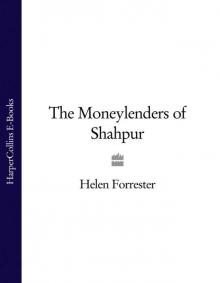 The Moneylenders of Shahpur
The Moneylenders of Shahpur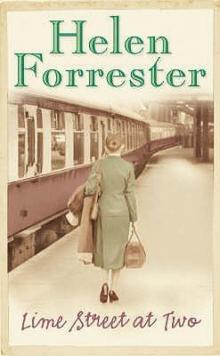 Lime Street at Two
Lime Street at Two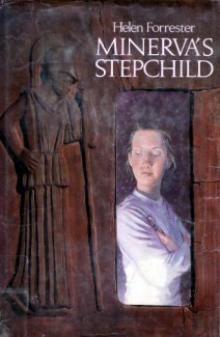 Minerva's Stepchild
Minerva's Stepchild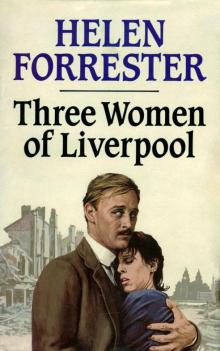 Three Women of Liverpool
Three Women of Liverpool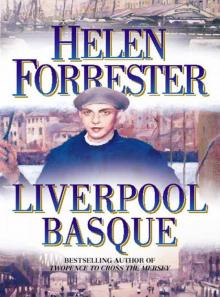 The Liverpool Basque
The Liverpool Basque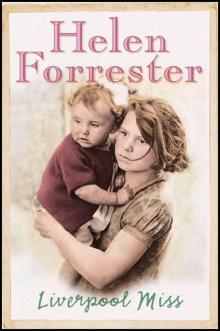 Liverpool Miss
Liverpool Miss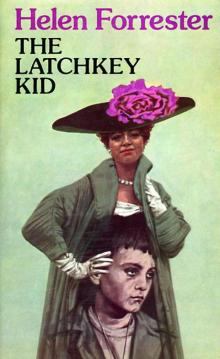 The Latchkey Kid
The Latchkey Kid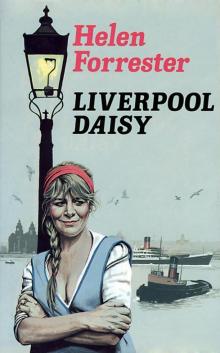 Liverpool Daisy
Liverpool Daisy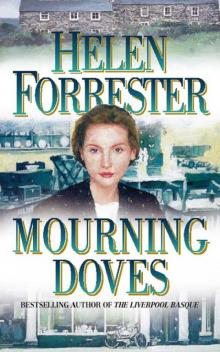 Mourning Doves
Mourning Doves